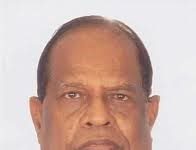By Pradeep Jeeha
In the early days of this legislature, the newly elected “Lepep” Government (PMSD/ML/MSM), capitalising on its recent electoral victory, dissolved all the municipal councils elected in 2012 for a six-year term and called for fresh municipal elections winning all the municipal seats. The village council elections held in 2012 were not nullified and so the village and district councillors carried on until 2018, the year in which fresh village council and district elections are due. Backed with their numerical strength the Government, scenting a growing public resentment, has by a simple parliamentary majority in the National Assembly, decided to postpone these elections to 2020 and that also they are to be held only after the general elections are over. The Prime Minister further nonchalantly boasted in Parliament that he can hold these general elections in 2020 when in fact the National Assembly will automatically stand dissolved on 19th December 2019.
With this nth amendment to the Local Government Act to postpone the holding of the local council elections for the nth time, it is high time that serious thoughts be given to the need of having a fixed term legislature in Mauritius for Local Councils as well as for the National Assembly. In a respectable democratic society, no Government, irrespective of its parliamentary majority should be allowed to tinker with the holding or non-holding of democratic elections. The power to dissolve parliament, to hold snap elections or to postpone the holding of general elections can no longer be left at the sole discretion and prerogative of the Prime Minister. Similarly no minister can have the power of tinkering with the holding of local elections. The dissolution of the National Assembly and of local councils must be taken out of the realms of party politics and the concept of having a 6-months interim government after dissolution of the National Assembly is no longer justified in a democratic society.
As matters stand today, the National Assembly is dissolved by the President on the advice of the Prime Minister, who has a strong de facto control of the timing of the General elections. The holding of general elections every five years has become the norm since the constitutional amendments of 1982 .But the timing of local elections has been forgotten and the Prime Minister’s power to call for snap elections has been left undeterred. It is therefore urgent that the holding of local elections after a fixed term be also entrenched in our constitution.
There is no need to reinvent the wheel. In the UK, this is a reality since 2011. Under the FIXED TERM PARLIAMENT (FTP) ACT 2011, the UK Parliament, which is considered as the mother of all parliaments, is subject to a fixed term tenure (FTP), whereby general elections are now held on a fixed date every five years. General elections can be held on any other later date not exceeding two months of the statutory fixed date provided that both houses of Parliament have approved the same. In all instances, UK voters now know with certainty that Parliament stands dissolved with 25 working days of the polling day.
Parliament, not the Prime minister, may call for an early election on a motion which on a division of votes requires a majority of two thirds of MPs (inclusive of vacant seats). The only other instance that calls for an early election is where Parliament by a simple majority votes in favour of a motion of no confidence against the government which is not reversed within 14 days. Furthermore the Electoral Commission has been empowered to start monitoring electoral expenses of political parties and candidates as from the 55th month from the date the last general elections.
The Election Commission of India is also working along these lines to introduce the fixed term parliament in the Indian polity. At a time when we are taking about electoral reforms, Mauritius cannot stay behind unless a few people still want to perpetuate an outdated system which serves only their interest when they are in power.



![[Billet] Quelle face hideuse !](https://sundaytimesmauritius.com/wp-content/uploads/2019/03/NZ-218x150.jpg)






![[Incendie au ministère de la Sécurité sociale] Une tentative de destruction de preuves ?](https://sundaytimesmauritius.com/wp-content/uploads/2025/07/A-150x150.jpg)
![[Affaire de mœurs à Flic-en-Flac] Une mère arrêtée pour avoir prostitué sa fille adolescente](https://sundaytimesmauritius.com/wp-content/uploads/2025/07/Capture-decran-2018-01-04-a-14.50.31-copie-696x4821-1-150x150.jpg)


![[Incendie au ministère de la Sécurité sociale] Une tentative de destruction de preuves ?](https://sundaytimesmauritius.com/wp-content/uploads/2025/07/A-100x70.jpg)
![[Affaire de mœurs à Flic-en-Flac] Une mère arrêtée pour avoir prostitué sa fille adolescente](https://sundaytimesmauritius.com/wp-content/uploads/2025/07/Capture-decran-2018-01-04-a-14.50.31-copie-696x4821-1-100x70.jpg)